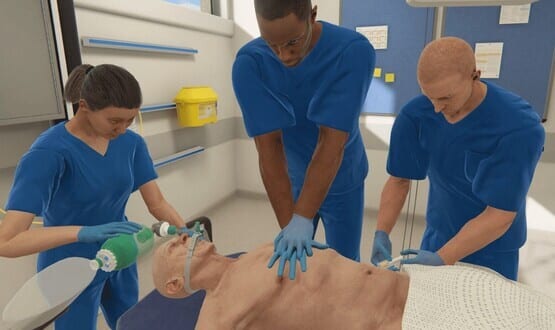Online workshop to help guide Building a Digital Ready Workforce programme
- 14 November 2017

While there has been a lot of talk about the importance of digital transformation of the health service, a key component that has sometimes been missing from this conversation is whether the workforce is ready to adopt digital tools and embrace the full potential of technology.
As a result, the National Information Board launched the ‘Building a Digital Ready Workforce’ (BDRW) programme as part of Personalised Health and Care 2020. The aim: to develop the digital skillset and knowledge of England’s three million health and social care professionals to enable them to deliver better and safer care.
And as part of the programme, they are collaborating with innovation and crowdsourcing agency Clever Together and Digital Health to ask the widest possible cross-section of informaticians and digital experts how to improve the digital readiness of England’s entire health and social care workforce.
At the heart of this campaign is an online workshop. It will be launched on 22 November, in partnership with BCS Health and Care, the Federation of Informatics Professionals in Health and Social Care, and the Faculty of Clinical Informatics.
“BDRW is a people programme,” says James Freed, chief information officer of Health Education England, which leads the BDRW workstream. He states there are three elements to any technological project: the technology itself, the process and the people.
“In almost all technological programmes I have seen, our efforts are mostly about technology and very little about process, and the process redesign, and almost none on people.”
The online workshop is an opportunity to hear both from those who already have a strong voice and from the voices of those who are often not heard, he adds.
Andy Kinnear, chair of BCS Health and Care, elaborates further: “The aim is to hear from digital experts; the wider group of people involved in the digital space such as nurses, doctors and care professionals; and the entire health and social care workforce.”
The online consultation will run for about three weeks and its results will form the basis for how the BRDW programme will prioritise and invest £6m over the next four years. Its findings will be extensively covered by Digital Health.
Freed admits the reason behind this online workshop is because the health and social care system needs to change. And digital – which includes data, information, knowledge and technology – is an important part of that transformation. He also firmly believes that the frontline staff who are being invited to take part in the online workshop have the solutions.
He says some studies suggest that across all industries, 60% of change comes from frontline staff, 30% from the management and about 10% from the boardroom.
“I have a frustration with how arm’s length bodies, and management in general, tend to operate. We do a lot of command and control; we assume people in high positions of authority and hierarchy have all the answers.
“In reality, we know most ideas don’t come from the boardroom.” He believes a better way of problem solving is using the sum total of our collective intelligence – hence the online workshop.
Freed firmly believes that, for innovation to truly thrive, it needs to be part of the working lives of every single individual in the health and care system. He illustrates his point by giving the example of Warwickshire Care Services, an independent social care provider. He says their chief executive has implemented “a value set which means everything is everyone’s responsibility”.
“For example, they have a scheme where people with dementia can ride a bike safely by being accompanied by someone who doesn’t have dementia riding along with them.
“Or as part of another programme, they have microphones in all rooms of the care homes so if someone wakes up in night or is distressed, there are people to help them. And this stuff goes in their electronic patient records.”
The organisation has created a culture whereby every kind of innovation thrives, he adds. “It doesn’t have a CIO or even a director of IT – it’s everyone’s responsibility.”
For Freed, the online workshop will help in defining the role of informaticians – that is how digital experts, leaders and educators can share their knowledge with others.
“Being a good informatician is more than knowing your way around a database.”
You can register now for the online workshop, which launches next week. Keep an eye on Digital Health for ongoing coverage.




